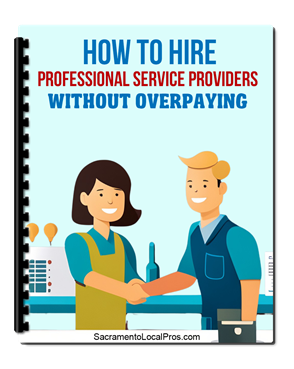Money management is one of the most important life skills that we need to master to lead a stress-free life.
Managing money means making smart decisions with our finances and maintaining a balance between spending and saving.
Unfortunately, not everyone is equipped with good money management skills from birth.
However, with the right guidance and discipline, anyone can become financially responsible.
We will share ten money management tips that will help you take control of your finances and build a brighter financial future.
1)) Create A Budget
Creating a budget is the first step in managing your money effectively. Start by listing your income and expenses.
Be realistic and don't underestimate expenses. Categorize your expenses into essentials like rent, utilities, and groceries, and non-essentials like entertainment and dining out.
The goal is to spend less than what you earn. Stick to your budget and make adjustments if necessary.
Tips to Improve Your Budgeting Skills:
- Prioritize your expenses: Focus on paying off the necessities first, such as rent/mortgage, utilities, groceries, and transportation. Once these are taken care of, then allocate a portion of your budget to discretionary spending.
- Use budgeting tools: Utilize budgeting apps and tools that can help you keep track of your income and expenses, and provide insights into your spending habits. This will help you manage your budget more effectively.
- Regularly review and adjust your budget: Changes in income, cost of living, or personal circumstances can impact your budget. Make it a habit to review your budget regularly and make adjustments as needed to ensure it aligns with your current financial situation.
Creating and managing a budget is a crucial first step in effective money management.
It provides a clear view of your financial standing, enabling you to make informed decisions about your spending.
By prioritizing your expenses, using budgeting tools, and regularly reviewing your budget, you can maintain a balance between your income and expenditures.
The aim is not just to create a budget, but to stick to it to ensure a secure financial future.
2)) Save Money
Save a portion of your income every month. Even a small amount saved regularly can grow to a substantial sum over time.
Aim to save at least 20% of your income. To make it easier, automate your savings by setting up an automatic monthly transfer to your account.
Tips to Enhance Your Savings:
- Set saving goals: Having a clear goal makes saving easier. Whether it's for an emergency fund, vacation, or retirement, knowing what you're saving for can motivate you to stick to your savings plan.
- Automate your savings: Set up an automatic transfer to your savings account each time you're paid. This 'out of sight, out of mind' approach can help you save without even noticing it.
- Cut unnecessary expenses: Review your spending habits and identify areas where you can cut back. Small changes, like making coffee at home instead of buying it, or canceling unused subscriptions, can lead to significant savings over time.
Saving money is a vital aspect of financial stability and growth.
By setting clear savings goals, automating your savings, and cutting unnecessary expenses, you can accumulate a significant financial buffer over time.
The key to successful saving is consistency and discipline. Every penny saved today is a step closer to financial independence tomorrow.
3)) Pay Off Debt
Debt can hinder your financial growth, so it's essential to pay off any debts you might have.
Start with high-interest debts like credit cards and personal loans. Make extra payments and pay off your debts as soon as possible.
Tips to Effectively Pay Off Your Debt:
- Develop a debt repayment plan: Prioritize your debts based on interest rates, starting with the highest. Pay off these debts first while continuing to make minimum payments on the others.
- Consider debt consolidation: If you have multiple debts, consider consolidating them into one loan with a lower interest rate. This can simplify your repayments and potentially save you money.
- Cut back on discretionary spending: Redirect money from non-essential purchases towards debt repayment. Even small additional payments can shorten the length of time needed to become debt-free.
Dealing with debt can be a challenge, but with a structured approach, it's entirely possible to become debt-free.
Prioritizing your debts, considering consolidation options, and minimizing discretionary spending are effective strategies to expedite debt repayment.
Every payment made towards debt brings you one step closer to financial freedom and stability.
4)) Shop Smartly
It's essential to shop smart if you want to save money. Purchase items on sale, buy used items, and look for coupons online.
Avoid impulse buying and always stick to your shopping list.
Tips for Shopping Smartly:
- Plan and stick to your list: Before you go shopping, make a list of what you need and strictly adhere to it. This will help prevent impulse purchases and ensure you only buy necessary items.
- Compare prices: Before making a purchase, especially a big one, compare prices from different stores or online platforms to ensure you're getting the best deal.
- Take advantage of sales and discounts: Keep an eye out for sales, discounts, and coupons. They can significantly reduce your shopping expenses over time. However, be careful not to buy items you don't need just because they're on sale.
Smart shopping is more than just a money-saving trick; it's a lifestyle choice that encourages mindful spending.
By planning your purchases, comparing prices, and taking advantage of sales and discounts, you can significantly reduce your expenses without compromising on your needs.
It's not about denying yourself what you want but making informed choices that align with your budget and financial goals.
Being a smart shopper today can contribute to a more financially secure tomorrow.
Pro-Tip For Leveraging Amazon Prime To Save Money: An Amazon Prime membership, while having an upfront cost, can be a savvy investment for regular online shoppers. Prime members enjoy benefits such as free two-day shipping, access to exclusive deals, and early access to Lightning Deals. With the option to stream a vast library of movies, TV shows, and music, the membership pays for itself in savings on shipping and entertainment costs. Moreover, on special events like Prime Day, members can avail of considerable discounts on a wide array of products. Hence, smartly using an Amazon Prime membership can lead to significant savings on your purchases. Please note, that it's important to evaluate your shopping habits to ensure the benefits outweigh the cost of the membership.
5)) Invest Your Money
Investment can help you grow your money. Explore your options and make informed investment decisions. Consult a financial adviser if necessary.
Tips to Optimize Your Investments:
- Educate Yourself: Before diving into investments, make sure to educate yourself about the basics of investing. Understand the different types of investments, such as stocks, bonds, mutual funds, etc., and how they work.
- Diversify Your Portfolio: Don't put all your eggs in one basket. Diversify your investment portfolio across different asset classes and sectors to spread the risk.
- Seek Professional Advice: If you're unsure about where to start, consider seeking advice from a financial advisor. They can provide you with valuable insights and help tailor an investment strategy that suits your financial goals and risk tolerance.
Investing is a powerful strategy to grow your wealth and secure your financial future.
By educating yourself about various investment options, diversifying your portfolio, and seeking professional advice, you can navigate the investment landscape with confidence.
Investing is not about making quick gains but about building long-term wealth. So, start early, stay patient, and let your money work for you.
6)) Create An Emergency Fund
An emergency fund is a safety net that can help you during unexpected circumstances like losing your job or an unforeseen medical expense.
Aim to save at least six months' living expenses in your emergency fund.
Tips to Successfully Build Your Emergency Fund:
- Start Small: Don't be discouraged if you can't save a large amount right away. Even small, consistent contributions can build up over time. Aim to set aside a certain amount from each paycheck.
- Establish a Separate Account: To avoid the temptation of spending, consider setting up a separate account for your emergency fund. This will also help in tracking the growth of your fund.
- Automate Your Savings: Consider setting up an automatic transfer from your primary account to your emergency fund. This ensures regular savings and removes the hassle of manual transfers.
Building an emergency fund is a crucial part of financial planning, offering a safety net that can be the difference between a minor financial inconvenience and a disastrous economic setback.
By starting small, establishing a separate account, and automating your savings, you can gradually build a substantial emergency fund.
This fund serves as your financial shield in times of crisis, providing you with peace of mind and financial security.
7)) Evaluate Your Subscriptions
Evaluate all your subscriptions and cancel any that you don't need or use regularly.
This can include music, TV, and other subscription services that can rack up expenses quickly.
Tips for Evaluating Your Subscriptions:
- Review Regularly: Make it a habit to regularly review all your subscriptions. Check whether you're using them enough to justify the cost or if there are cheaper alternatives available.
- Cancel Unused Subscriptions: If you find any subscriptions that you're no longer using or don't need, cancel them immediately. They can add up to a significant amount over time.
- Opt for Annual Plans: Some services offer discounts if you opt for an annual plan instead of a monthly one. If you're sure about the utility of a particular subscription, consider switching to the annual plan to save money.
Regularly evaluating your subscriptions is an effective way to curb unnecessary expenses and streamline your budget.
By actively reviewing your subscriptions, eliminating those that no longer serve you, and opting for discounted annual plans when feasible, you can ensure you're only spending on services that provide real value.
Every little bit of savings contributes to your overall financial health and goals.
8)) Plan For Retirement
It's important to plan for retirement from an early age. Regularly contribute to a retirement account and plan for your future financial needs.
Tips for Effective Retirement Planning:
- Start Early: The sooner you start saving for retirement, the more time your money has to grow. Begin contributing to your retirement fund as early as possible to take full advantage of the power of compound interest.
- Maximize Your Contributions: If your employer offers a retirement plan like a 401(k) and matches your contributions, make sure to contribute enough to get the full match. This is essentially free money that can boost your retirement savings.
- Consider Roth IRAs and Traditional IRAs: Beyond employer-sponsored plans, consider investing in a Roth IRA or Traditional IRA. Each has unique tax advantages that can help grow your retirement savings. Educate yourself about these options and consult a financial advisor if needed.
Planning for retirement is a long-term commitment but holds the promise of a financially secure and comfortable future.
Starting early, intelligently maximizing contributions, and exploring various retirement accounts are crucial steps toward building a robust retirement fund.
It's never too soon to start planning, with every step taken today bearing the potential to contribute significantly to your retirement nest egg.
Retirement planning isn't just about financial security, it's about ensuring a quality life in your golden years.
9)) Avoid Lifestyle Inflation
Lifestyle inflation is when people increase their spending as their income increases. Avoid lifestyle inflation by sticking to your budget and saving any extra income you receive.
Tips to Avoid Lifestyle Inflation:
- Stick to Your Budget: Regardless of how much your income increases, maintain your current lifestyle and budget. Use any extra money for savings, investments, or paying off debts.
- Avoid Comparisons: Resist the urge to match the lifestyles of your peers who may have higher incomes. Focus on your own financial goals and needs.
- Prioritize Financial Goals: Whenever your income increases, allocate the extra money to your financial goals first. Whether it's paying off debt, increasing your emergency fund, or contributing to your retirement savings, ensure these goals are prioritized.
Avoiding lifestyle inflation is a key strategy in preserving your financial health and achieving long-term goals.
By adhering to your budget, avoiding unnecessary comparisons, and prioritizing financial objectives, you can effectively leverage increased income to enhance your financial stability.
The journey to financial success and freedom is not about emulating others' spending habits, but about making informed and disciplined financial decisions that align with your personal goals.
10)) Educate Yourself
Educate yourself on personal finance by reading books, attending seminars, and consulting financial advisers.
The more informed you are, the better equipped you will be to make smart financial decisions.
Tips for Financial Self-Education:
- Read Widely: There is a wealth of information available in books, blogs, podcasts, and online platforms about personal finance. Read widely and diversely to gain a comprehensive understanding of financial principles.
- Attend Workshops/Seminars: Participate in financial workshops or seminars. These often provide a deeper understanding of specific topics, and they offer an opportunity to engage with experts and peers.
- Consult Professionals: Don't shy away from seeking help from financial advisors or consultants. They can provide valuable personalized advice based on your unique financial situation and goals.
Self-education in financial matters can significantly empower you to make informed and beneficial financial decisions.
By reading extensively, attending informative seminars, and consulting professionals, you enhance your financial literacy, which is an asset in itself.
The journey to financial independence begins with knowledge.
The more you learn, the better equipped you are to navigate the intricate world of personal finance.
Conclusion
Money management can be difficult, but with discipline and effort, anyone can master the art of financial management.
Implement these ten tips into your daily routine, and you will be able to build a bright financial future for yourself.
Small steps can lead to significant progress. Start by creating a budget today and take control of your finances.
Stay informed and educated, and you will be able to navigate any financial hurdles that come your way.
Related Articles and Guides:
- How To Manage Your Money
- How To Manage Money As A Married Couple
- 10 FAQs About How To Manage Your Money Better
- 10 Tips For Managing Your Money
- 10 Money Management Hacks For Beginners
Download Our Free E-book!








